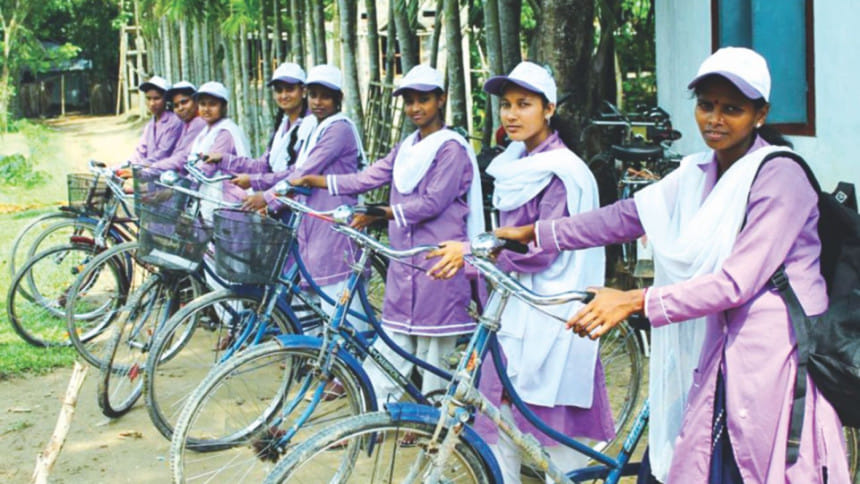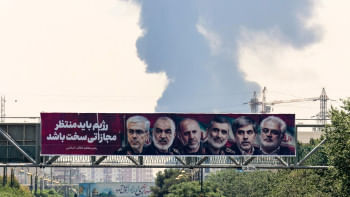An effective game-changer

Early in 2015, when political uncertainty and violence were plaguing Bangladesh, I flew to Bangladesh from Australia with a mission which almost seemed impossible to do at the time: complete the fieldwork of my PhD degree. I must acknowledge that I was never a fan of research and the journey to PhD was almost a serendipitous one. As such, undertaking the fieldwork amidst all this chaos was far from what I had ever imagined.
The topic of my PhD was related to social entrepreneurship, which I chose after being tremendously influenced by reading about Nobel Laureate Professor Muhammad Yunus. The impact he had made in the world is undeniable. I was moved with a simple but profound quote where he said: "Human beings are much bigger than just making money." As I immersed myself into literature on social entrepreneurship, I was overjoyed to see that Bangladesh had been recognised as a "global pioneer" of social entrepreneurship. It was overwhelming to know that a number of Bangladeshi social entrepreneurs championed revolutionary social enterprise business models and brought glory to an almost nondescript country like Bangladesh. Whereas the rest of the world seems to be celebrating the impact of social enterprises in Bangladesh, the country itself is ironically plagued by lots of problems when it comes to social entrepreneurship which were echoed by the participants of my field study.
As soon as I received consent from top social entrepreneurs like Sir Fazle Hasan Abed and Runa Khan, among a few others agreeing to participate in my research, my apprehensions turned into passion and soon the perils of blockades in the country which had claimed the lives of more than 75 people seemed trivial. I came to know that a myriad of challenges are faced by the social enterprise sector in Bangladesh which, if resolved, can offer abundant possibilities.
The biggest problem which all the social entrepreneurs echoed is the structural ambiguity of social ventures in Bangladesh. Although there is mounting enthusiasm on being "social" or doing business with a "social purpose", there is limited understanding on what is a social venture. The apparent ambiguity is reflected in the manifestation of various forms of social ventures, e.g. NGOs, co-operatives, social businesses, micro-finance businesses, and more recently, private social enterprise start-ups. Although all of these ventures share a similar purpose—"to do good for the society"—the way they function and operate are very different. The limited understanding about social enterprises can be attributed to the lack of awareness on socially-driven businesses in Bangladesh.
Although programmes like BRAC Social Innovation Lab and Grameen Social Business Design Lab are working to relentlessly promote a social entrepreneurial ecosystem in Bangladesh, the acceptance and promotion of such programmes are far too scant considering the breadth of social problems. Interestingly enough, I was perplexed to see that social entrepreneurship is more popular in countries which face less social problems. A search through "Google trends" with the keywords "social entrepreneurship" shows that people searched the topic of social entrepreneurship more often in countries like Australia and the US compared to Bangladesh. In reality, it should be the reverse considering the magnitude of social problems in Bangladesh and the low level of support from the government.
Consistent with ambiguous structural identity, social enterprises in Bangladesh operate under no specific policy or government legislation. This has caused major debate and often led to questions on the role played by social enterprises. Microfinance, which is a pioneering concept of Bangladesh and was replicated even by developed nations, has often been criticised for exploiting the poor. This is in part due to the lack of understanding and bottom-line legislation to monitor actions by social ventures. Fortunately, after repeated calls from stakeholders, in recent years, the government of Bangladesh introduced regulations to monitor social ventures and microfinance practices.
In Bangladesh, there is hardly any educational institution which offers formal degrees or accredited courses to teach social entrepreneurship. This is also the case of academic research whereas Bangladesh is a fertile ground for building scholarly research practice in such areas. In contrast, I have seen even primary educational institutions in Australia embrace topics such as sustainable thinking and philanthropy to instil the spirit of social welfare at an early age. By the time students reach college or university, they are ready to pitch ideas to venture capitalists, get exposed to business incubators or travel abroad to network with social entrepreneurs. There are state-of-the-art research facilities in universities aimed towards social innovation which attracts lots of funding and international collaboration.
Access to funding stood out as another major challenge for social enterprises in Bangladesh. A vast majority of social entrepreneurs expressed that access to start-up capital and scale-up capital is very limited. This eventually jeopardises the existence of the venture even though the venture may have addressed a vital social issue. The traditional support mechanisms, such as banks or financial institutions that can foster the growth of social enterprises, are scarce compared to commercial enterprises. This is largely due to the fundamental misconception that socially-driven organisations are not profitable and there are risks involved in lending them money. Although Grameen Bank, the Nobel Prize-winning organisation, has debunked this myth recording a whopping Tk 220 crore in net profit in 2017, which was a 58 percent increase from the previous years, the story of other ventures is not as rosy. Except for a few, most start-up social enterprises do not receive any funding support either from the public or private sector. In developed countries like Australia, social entrepreneurs get tremendous support from the government and other funding bodies including private commercial banks.
I hope that the policymakers in Bangladesh realise the true potential of social entrepreneurship and find ways to incentivise growth and sustainability of social enterprises. Social entrepreneurs like Professor Muhammad Yunus and Sir Fazle Hasan Abed have already laid the groundwork and have shown how a tiny gesture can transform the world. Now it is up to the future generation of Bangladesh to be inspired and realise the potential of doing business with a social mission.
Sayem Hossain is an academic, researcher and social enterprise enthusiast residing in Australia.
Email: [email protected]





Comments